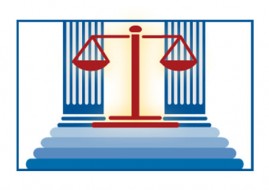Walking a Tight Rope: Preserving the Attorney-Client Privilege
By Kirsten L. Christopher [Originally published in NYPRR April 1998]
As trusted members of management, in-house counsel play an active role in business decision-making. Because in-house lawyers serve a dual role, many executives believe all communications with them are privileged. The lawyer must therefore be the guardian of the attorney-client privilege. He must delineate his business and legal roles to preserve his effectiveness in both roles. The delineation is also crucial to maintaining the attorney-client privilege in communications with management.
Walking a fine line between providing legal and business advice in the many corporate daily activities, in-house counsel should take steps to ensure that the attorney-client privilege is maintained. This article discusses the pitfalls routinely faced by corporate counsel and provides a roadmap for New York lawyers in preserving the attorney-client privilege.
Serving as Custodian of Documents
Management may funnel internal documents and papers to the legal department as custodian, with the objective of avoiding later disclosure. But the New York courts regard corporate papers as “independent documents,” and mandate production of books and records by the records custodian, whoever she may be. It is: “immaterial whether they are in the possession of an officer of the corporation or its attorney.” Their production is in the interests of justice and does not depend upon the identity of the custodian. [In re Matter of LeFever v. Lefkowitz, 178 N.Y.S.2d 172 (Ulster Cty. 1958).]
With this perspective, corporate counsel should be careful to inform management that there is a fine but discernible line between legal documents and general corporate records and that there are pitfalls in using the legal department as document custodian for any documents outside the lawyer-client relationship.
Providing Legal Advice Outside of the Legal Department
General counsel and management should define and limit the role of lawyer-employees who are not members of the legal department. The New York courts have denied the attorney-client privilege to communications with a lawyer who was not hired by the corporation to act in a legal capacity. [In re Matter of Alpert, 624 N.Y.S.2d 588 (1st Dept. 1995); In re Matter of New York State Board of Elections v. Fricano, 558 N.Y.S.2d 464 (Sup. Ct. Albany Cty., 1990).]
The only legal advice or communication which is assured of protection under the attorney-client privilege is that dispensed by the legal department, operating as a separate inside law firm, by attorneys who perform no business functions. [Quail Ridge Associates v. Chemical Bank, 571 N.Y.S.2d, 174 A.D.2d 959 (3d Dept. 1991).]
Providing Advice in Litigated Matters
Generally, the privilege covers communications by in-house counsel with respect to imminent or ongoing litigation. Even when legal and business advice are intertwined, the New York courts uphold the privilege in connection with communications regarding litigation “so long as communication between an attorney and client is primarily or predominantly of a legal character.” [Rossi v. Blue Cross And Blue Shield of Greater New York, 540 N.E.2d 703, 73 N.Y.2d 588 (N.Y 1989).]
New York courts have extended the privilege in litigated matters to communications by counsel with low-level employees and former employees, even though these employees may be called later as witnesses by the opposing party. [Radovic v. City of New York, 642 N.Y.S.2d 1015 (Sup. Ct. N.Y. Cty. 1996).]
Counsel should note, however, that in interpreting the general rules requiring production of evidence, the courts may decline to respect the attorney-client privilege in order “to avoid unjust results.” For example, one court determined that the attorney-client privilege did not apply to a nine year old memorandum prepared by counsel to refresh a witness’ recollection about events that took place ten years earlier. [E. R. Carpenter Company v. ABC Carpet Co., Inc., 415 N.Y.S.2d 351 (Civ. Ct. N.Y. Cty. 1979).]
Providing Business Advice in Non-Litigated Matters
In non-litigated matters, judicial recognition of the corporate attorney-client privilege is tenuous. Several decisions highlight the fine line that corporate counsel must walk in providing legal advice in specific corporate transactions.
If the advice concerns strictly legal matters, the privilege is usually respected. In Allied Artists Picture Corp. v. Raab Productions, Inc. [327 N.Y.S.2d 167, 38 A.D.2d 537 (1st Dept. 1971)], the court examined interoffice memoranda prepared by counsel. Because these documents were legal in nature and contained analysis by the attorney and advice to the client, they were protected by the attorney-client privilege.
Similarly, in Nicolo v. Greenfield [558 N.Y.S.2d 371, 163 A.D.2d 837 (4th Dept. 1990)], the Appellate Division held that the attorney-client privilege applied to documents to and from attorneys for a government agency. Although these communications did not deal with pending cases, their discussion of legal rights and obligations of the agency and recommendation of legal strategies justified extension of the privilege.
However, when in-house counsel gives both legal and business advice or acts in a dual capacity, the New York courts decline to extend the shroud of the attorney-client privilege to their communications.
Mixed business and legal advice, memorialized in hand-written notes of an attorney who acted as both in-house counsel and corporate secretary, were not shielded by the attorney-client privilege from discovery. [Cooper-Rutter Associates, Inc. v. Anchor National Life Insurance Co., 563 N.Y.S.2d 491, 168 A.D.2d 663 (2d Dept. 1990).]
When an attorney is given responsibility for making legal and business decisions in preparing the company’s response to plaintiff’s request in litigation, the attorney may be deposed, since he may possess knowledge of fact which are properly discoverable. [City of Elmira v. Walter, 453 N.Y.S.2d 259, 89 A.D.2d 6455 (3d Dept. 1982).] Corporate counsel should always remember that when they cross the line and take on a matter of corporate business, their communications will be treated accordingly.
Participating as a Fact-Finder in Internal Investigations
When in-house counsel is asked to initiate or participate in internal investigations of corporate or employee wrongdoing, she is apt to discover that her fact-finding role will uncover information that is discoverable. The Appellate Division has held that information received by an attorney from persons and sources other than the client, while acting on behalf of the client, falls outside the attorney-client privilege. [Kenford Co., Inc. v. Erie County, 390 N.Y.S.2d 715, 55 A.D.2d 466 (4th Dept. 1977).]
As these cases illustrate, the attorney-client privilege does not provide blanket protection for all confidential communications between management and in-house counsel. Whether the privilege will be applied in a particular case will depend on a fact-specific analysis by the court. Corporate counsel should take steps to maintain the sanctity of their communications as lawyers by counseling the corporate client about the nature and limitations of the attorney-client privilege. The privilege is not all-embracing.
DISCLAIMER: This article provides general coverage of its subject area and is presented to the reader for informational purposes only with the understanding that the laws governing legal ethics and professional responsibility are always changing. The information in this article is not a substitute for legal advice and may not be suitable in a particular situation. Consult your attorney for legal advice. New York Legal Ethics Reporter provides this article with the understanding that neither New York Legal Ethics Reporter LLC, nor Frankfurt Kurnit Klein & Selz, nor Hofstra University, nor their representatives, nor any of the authors are engaged herein in rendering legal advice. New York Legal Ethics Reporter LLC, Frankfurt Kurnit Klein & Selz, Hofstra University, their representatives, and the authors shall not be liable for any damages resulting from any error, inaccuracy, or omission.
Related Posts
« Stiffer Sanctions for Frivolous Litigation Conduct: Amended Part 130 Now in Effect How to Advertise Fees Within Rules »













